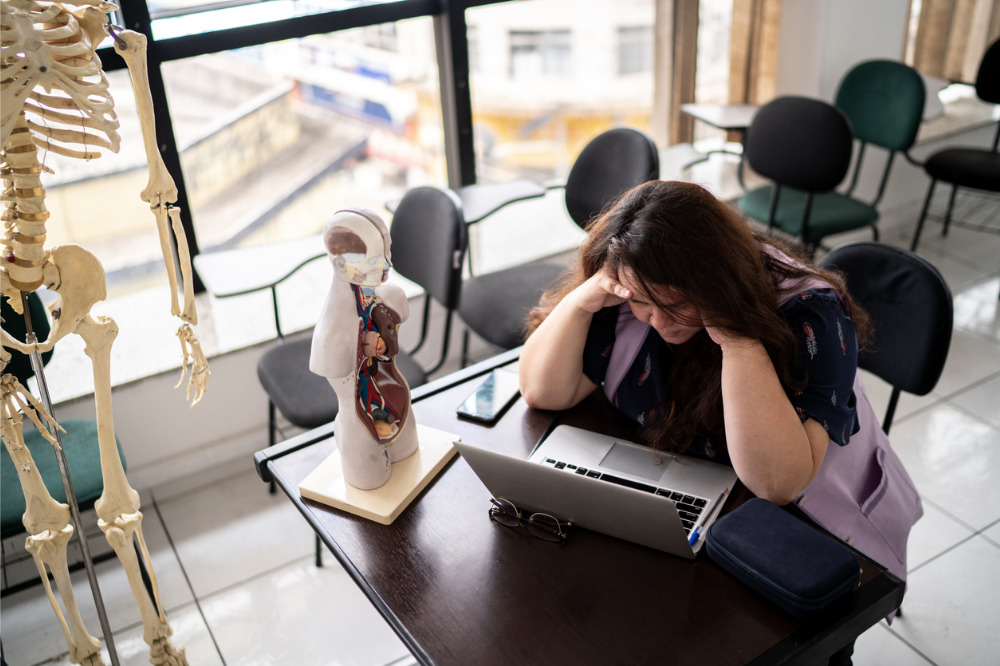
Public school staff in Victoria worked an average of 32 unpaid hours on report writing and related activities, delivering a saving of $92.2m to the State Government every semester.
The ‘State of Our Schools’ report, conducted by the Victorian branch of the Australian Education Union during February and March, found that teachers, principals and support staff work an average of 53 hours a week, and that “seldom manageable” workloads are continuing to increase.
Also on the rise is the profession’s stress levels, with a staggering 89% of staff saying their work-related stress had increased or increased a lot in the last 12 months. Seventy-two per cent of staff indicated that this had occurred due to excessive workloads.
The Australian Education Union’s Victorian branch recently collected data from 8,581 teachers, principals and education support staff from 552 Victorian government schools for the study.
The union found that school staff worked 276,235 unpaid hours on report writing and related activities during Term 2 alone,
“These are absolutely shocking numbers,” Australian Education Union Victorian Branch President Meredith Peace said.
“Report writing is a fundamental task required of teachers and is essential for providing invaluable feedback to students and parents. It is alarming that school staff are expected to complete such an important function of teaching largely unpaid and in their own time.”
Peace said each year, every public school student in Victoria receives $1,384 less funding compared to public school students in all other state and territories.
“This is another example of how public school staff make up the funding shortfall through excessive workload. Teachers, principals and education support staff who work in Victorian government schools are dedicated to delivering high quality education,” she said.
“They work in public education because they want every child to have the opportunity to reach their full potential, and they spend this time on report writing because they understand the importance of sharing accurate information about children’s progress with their parents.”
However, Peace said excessive workloads leave them exhausted, stressed and at risk of burning out.
“This has a direct impact on the education of students.”
Despite ongoing reports flagging wellbeing concerns for principals, the most comprehensive survey into the profession’s health and wellbeing shows the vast majority of school leaders still love their job.
Phil Parker, Professor at the ACU’s Institute for Positive Psychology and Education, said an underlying issue is the “obsessive passion” that principals have for their job.
“There are principals who have an obsessive passion for the job, where they can’t think of anything else but the job and everything else is sacrificed as a result. Whereas harmonious passion means that their job fits into other areas of their life,” Professor Parker told The Educator.
“So, the question then is, how can we help principals to have a harmonious passion rather than an obsessive passion?”
Dr Adam Fraser is a performance coach who co-developed the Flourish Movement along with Bob Willetts, deputy president of the NSW Primary Principals Association.
He says that teachers and principals who are still feeling anxious and stressed must be mindful to “recharge their battery”.
“Every night we put our phones on charge. We should be doing the same thing with ourselves so we are better prepared to face the challenges of the following day,” Dr Fraser told The Educator.
“Things that help us recharge are: deep relaxation, physical exercise, being in nature, being still, having a quality interaction with someone, laughing, being playful…the list goes on”.
Dr Fraser said that this is particularly important given the challenges and stressful situations principals deal with everyday, and how much of themselves they give to their school communities.
“Making sure you fill up your battery each day is essential for your wellbeing and mental health”.


